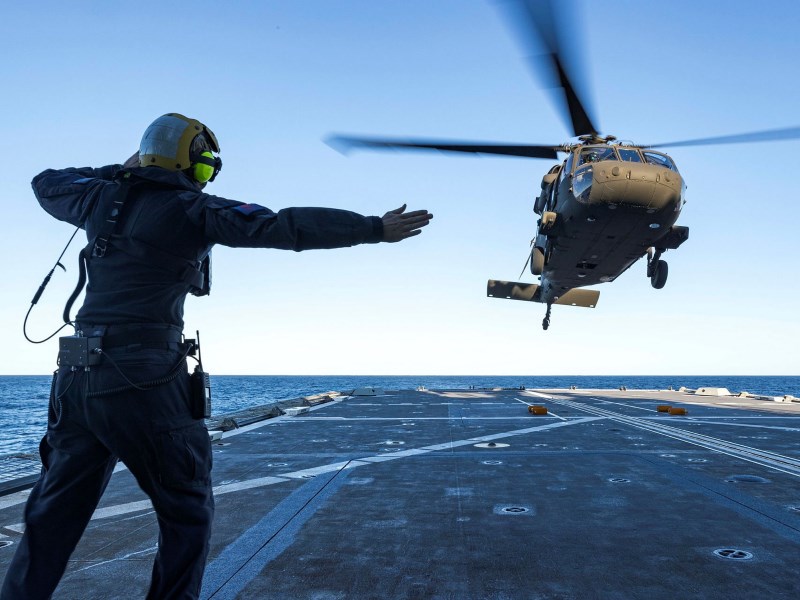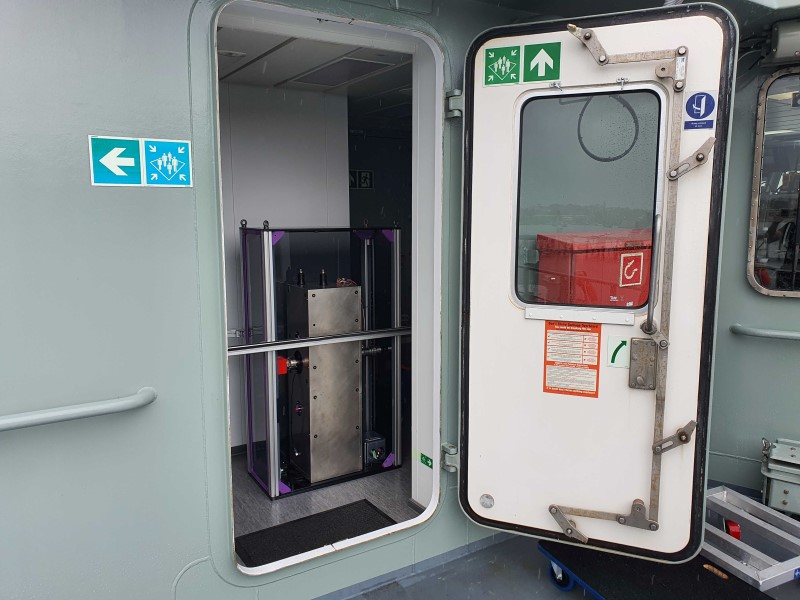An Australian Navy ship has completed the first trial of a locally developed autonomous quantum sensor for navigation on a Defence platform, recording promising results to shore up GPS alternatives.
A quantum dual gravimeter on board a Navy training vessel measured tiny variations in Earth’s gravity for almost a week without human intervention as part of a next-generation quantum-assured positioning, navigation, and timing (PNT) system.
The tech came from local quantum company Q-CTRL, which has worked with Defence to develop sensors that deliver a quantum-assured navigation capability to military platforms for the past two years.

Defence is developing alternatives for GPS for when it is unavailable or untrusted, and quantum assured PNT has the advantage of not being vulnerable to jamming or spoofing.
Quantum gravimeters can ‘see’ otherwise invisible hills and valleys in Earth’s gravity and reference against known gravity maps, so a user can self-orientate without any GPS.
It is especially useful for maritime vessels, which may not have access to other alternatives like quantum magnetic navigation.
In a significant advancement for Defence, the Q-CTRL trial on board the Navy’s training vessel MV Sycamore operated without special infrastructure. The dual gravimeter was bolted to the floor in the space of a single server rack in a communications room.
It consumed only 180W of power – about 10 times less than a household toaster, setting a record for SWaP (size, weight, and power), according to Q-CTRL.

Q-CTRL founder and chief executive Michael Biercuk said quantum sensors promise transformational defense capabilities but earlier deployments have struggled to achieve “defense-relevant performance”.
“Operating on a real moving vehicle is just not the same as conducting a science experiment; at Q-CTRL, we’ve taken a different approach to getting quantum sensors out of the lab, focusing on software as the critical enabler of performance in the real world,” he said.
The technology overcame conditions like the ship’s motion and engine vibrations, which typically disrupt signals, with Q-CTRL’s software ‘ruggedisation’, which the company said recovered operation at near world-record levels.
Q-CTRL has been working with Defence in Australia under a $1 million contract secured in 2023 to reduce reliance on GPS navigation.
Do you know more? Contact James Riley via Email.

